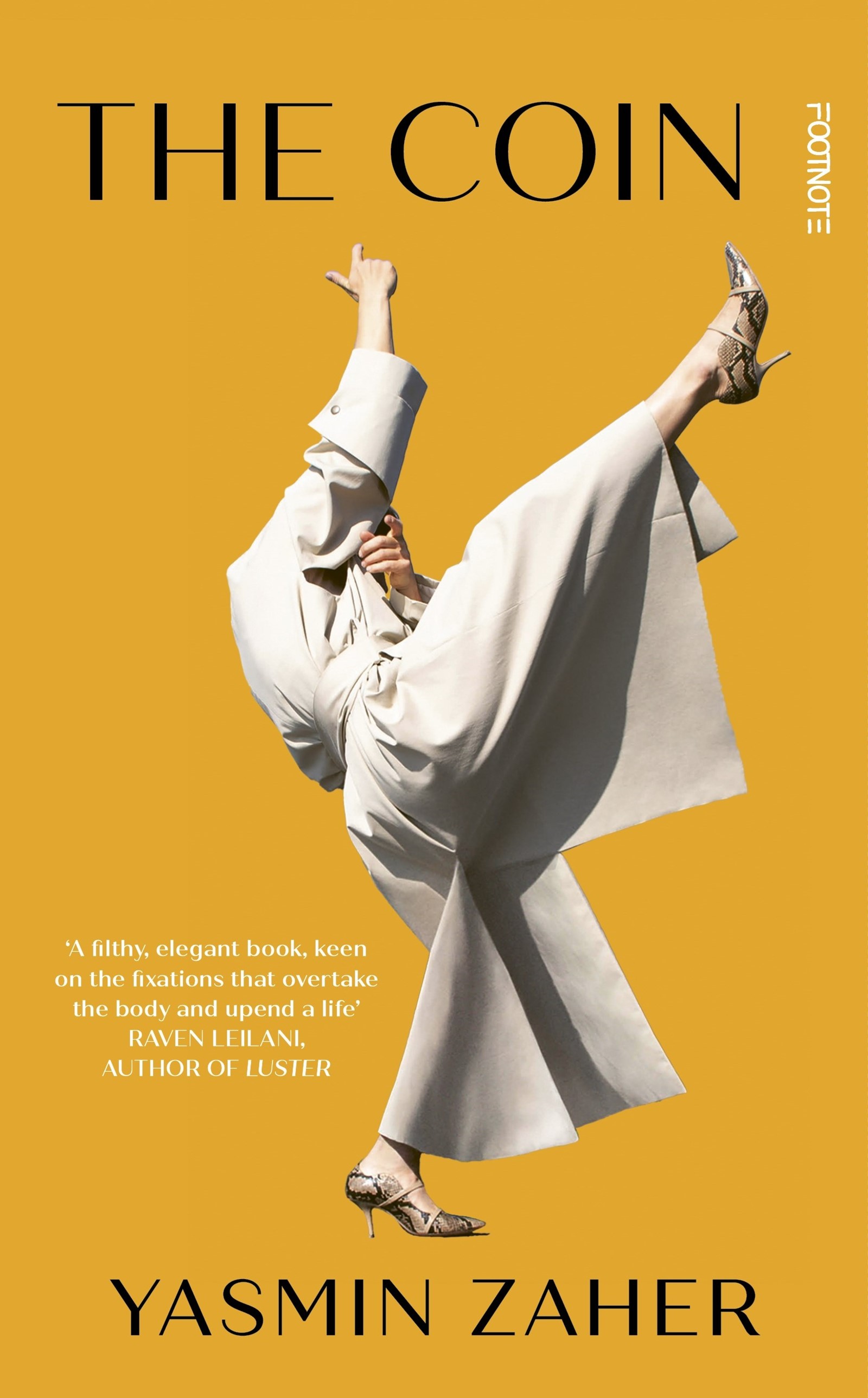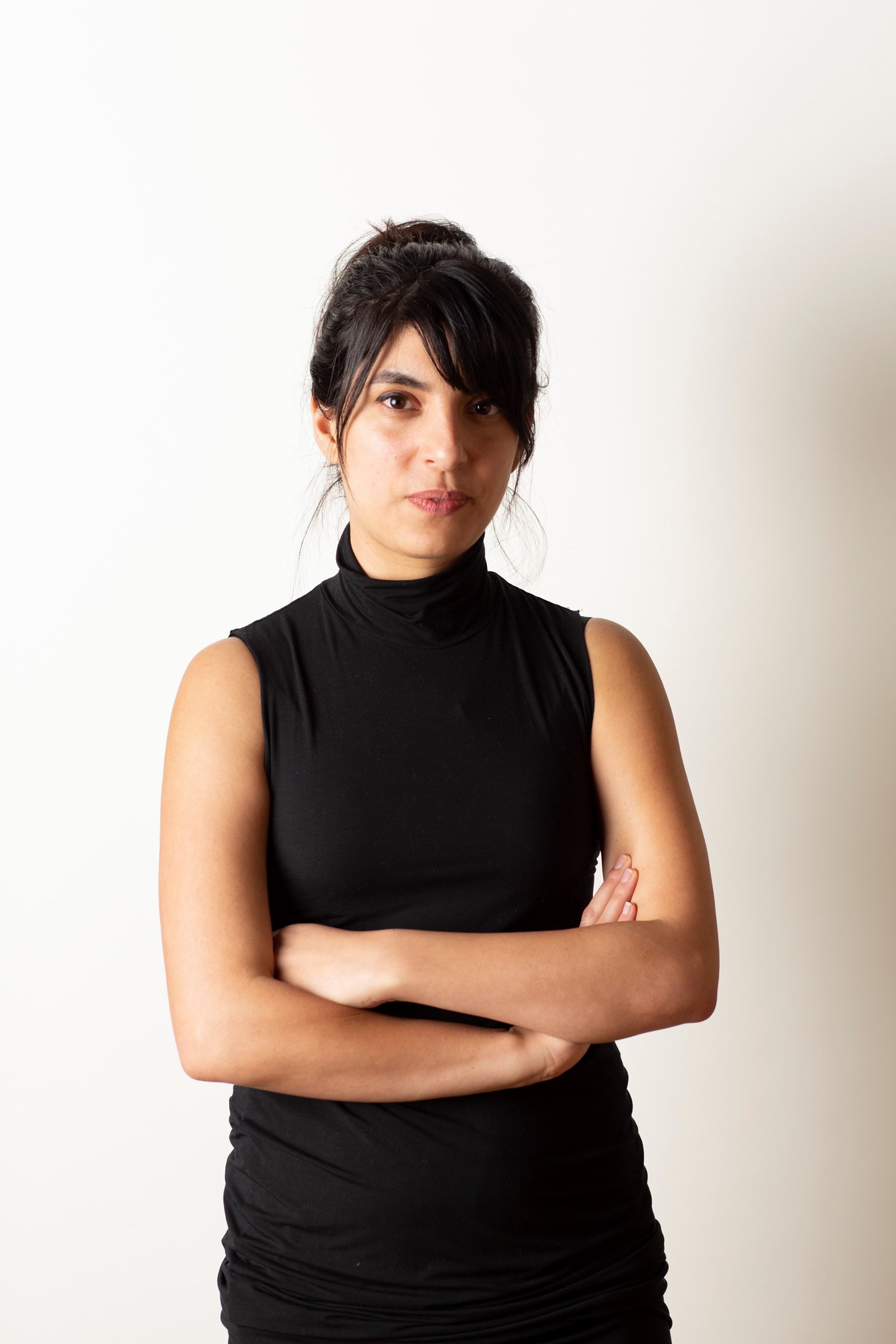When The Coin’s narrator moves from Palestine to New York, she is far from enamoured by the supposed city of dreams. Disgusted by the dirt of the city that rubs off on her, she develops a compulsive skincare regime. But it’s not just the dirt she struggles with; at the school where she works, fellow teachers stay mute when she mentions the invasion of Afghanistan, and she is acutely aware of American ideology being drilled into her students. The Coin’s narrator is an outsider and she feels it, although she possesses one American symbol that grants her respect from any onlooker: the Birkin bag.
As the narrator becomes embroiled in a Birkin bag Ponzi scheme, the complex nature of prejudice reveals itself; she is no longer invisible, and her Mediterranean appearance grants her access to exclusive luxury goods coveted by many Americans. The Coin is not concerned with offering answers, but it asks many vital questions, the most pertinent being: what good is wealth in the face of genocidal violence?
Before turning to fiction with The Coin, her debut novel, Yasmin Zaher’s journalistic career gave her the tools to offer precise political inclinations. Pair this astute understanding of her experience as a Palestinian woman on American soil with her uniquely sensorial prose, and you are left with a uniquely strange novel that explores statelessness and privilege.

Below, AnOther spoke with Yasmin Zaher about the racial connotations of dirt, being Palestinian in New York City, and the deafening silence around American foreign policy.
Billie Walker: I’m intrigued, why does Sasha get a name, but Trenchcoat, Curls and even the narrator remain nameless?
Yasmin Zaher: The names came to me very intuitively except her name. It was blank, and it’s probably because I identify very strongly with her. I decided to leave it as a homage to my identification with her. And keep her a little bit closer to me as well.
BW: The Coin reads like a very personal novel.
YZ: Yeah, it’s extremely personal. It’s definitely my soul out on the page.
BW: Mundane moments, like the soles of someone’s feet, trigger the narrator’s memories of Palestine. What did you want to say about the Palestinian diaspora experience in this book?
YZ: Well, I wasn’t born in a diaspora. I was born in Palestine to a family that is from the north and stayed in its historic homeland even after 1948. I left Palestine when I was 17 or 18, so I became diasporic in my life, and it was a learning experience for me. One of the things that I learned is sentimentality for things that, beforehand, had meant almost nothing to me. An olive tree didn’t mean anything to me for the first 18 years of my life. It was only after you live for years and years without seeing a single olive tree that it touches you, so I think I was trying to express my transition into the memory of Palestine rather than just [my] experiences living there.
BW: Your narrator’s turmoil becomes evident in her skincare routine. How did you make the connection between the racial connotations of dirt and this beauty regime?
YZ: She tells her students that people are racist and if you want them to look at you in a better light then you have to dress well, speak well and cut your hair in a nice way. She places a lot of importance on self-presentation as a form of defending against racism. Presentation is a way to control people’s biases. In general, cleanliness is a very funny thing because of how we define what is clean. Why is dirt bad? Why is dust a bad thing? It’s completely natural. So simply the idea of cleaning and obsessive cleaning is already a condition that is about control and trying to impose control on an unpredictable world.
“The idea of cleaning and obsessive cleaning is already a condition that is about control and trying to impose control on an unpredictable world” – Yasmin Zaher
BW: Speaking of the interactions with her students, she’s coming up against American ideology in this class dynamic. Were the interactions between her and the students drawn from firsthand experience?
YZ: Not quite. When I was in New York I taught very briefly at an all-boys middle school, very similar to the school that I described. The interactions are not taken from there. But my feeling towards these young men, and what life had in store for them, was very concerning. It brought up a lot of anger for me. You see these innocent boys and you know that life is going to be very tough for them.
BW: What we’re taught in schools, in terms of ideology and worldview, is really hard to unlearn.
YZ: Schools are very idealistic places. We know as people who finished school that there’s a crisis that comes after that. I went to Yale, which is a really idealistic place. You think the world is a beautiful place when you’re there. And I think a lot of us had big personal crises after graduating, realising what the world really was.
BW: Silence from the American characters surrounding foreign policy is unavoidable in the book. Did you want to interrogate this?
YZ: It’s something that you feel very strongly when you live there. There are not a lot of Palestinians and Arabs in New York, so you feel very strongly that you are almost unrecognisable to people. I wrote about this when the narrator meets the Malaysian seller at the Hermes store. He’s kind to her because she’s Palestinian – she experiences reverse racism.
In the US, you feel people don’t know how to read you. They don’t know how to relate to you. They don’t know what to say. They don’t even understand what it means to be Palestinian – they think you’re Pakistani. So, the way she starts understanding American culture is through how people perceive her through the Birkin bag.
BW: It’s a complex image. The Birkin bag is a symbol of America and the narrator’s possession of the bag gives her value to Americans, but she’s viewed as a potential buyer by Hermes precisely because she isn’t American.
YZ: It’s definitely not black and white. The narrator clearly states that the racial hierarchy is not dichotomous: “I felt better than Indians. I felt better than Ukrainians. I felt better than Africans.” It’s 50 Shades of Racism, I guess.
“It’s about privilege and it’s about New York. What is it like to be in this contemporary city of culture and what is it doing to people?” – Yasmin Zaher
BW: Your writing plays with privilege and layers of oppression. Why did you want to focus on those nuances?
YZ: I couldn’t write something that was too clean. I needed to write something that was messy, and that was closer to how I understand the world. I come from an upper class background, I’m privileged, but a lot of unfair things have happened to me in my life. So it’s not all or nothing and every single one of us is full of contradictions. For me, that’s when novels are at their best, when characters are not predictable. The muddiness of this book is what makes it real.
BW: Your novel has already been compared to Ottessa Moshfegh’s My Year of Rest and Relaxation. Do you have an opinion on that comparison?
YZ: That was the first book of hers that I read a month after I finished the first draft of this book. And I thought, wow, I feel like this is my literary soulmate or something. I definitely feel like we’re very close in our sensibility.
BW: It makes sense, as both are meticulous dissections of privilege.
YZ: It’s about privilege and it’s about New York. What is it like to be in this contemporary city of culture and what is it doing to people? It’s destroying people’s bodies and health.
The Coin by Yasmin Zaher is published by Footnote Press, and is out now.
